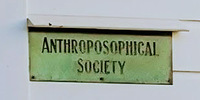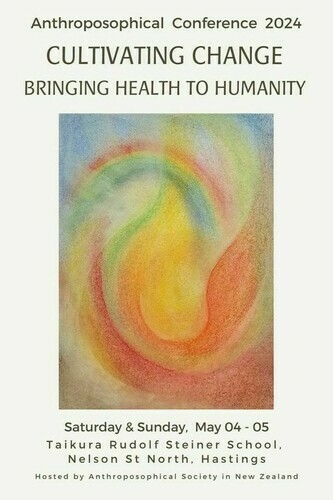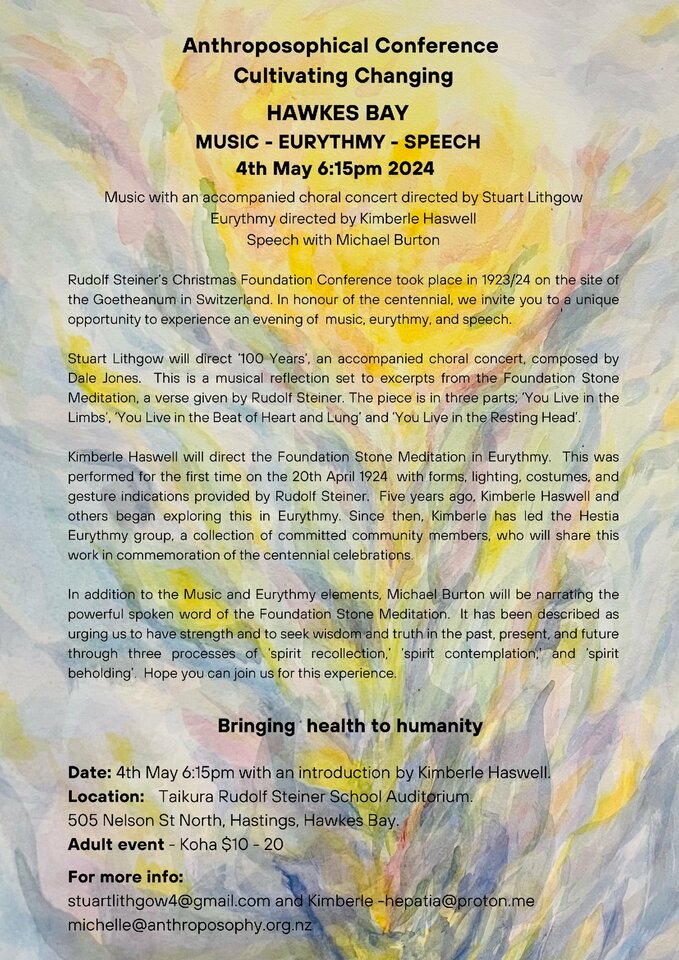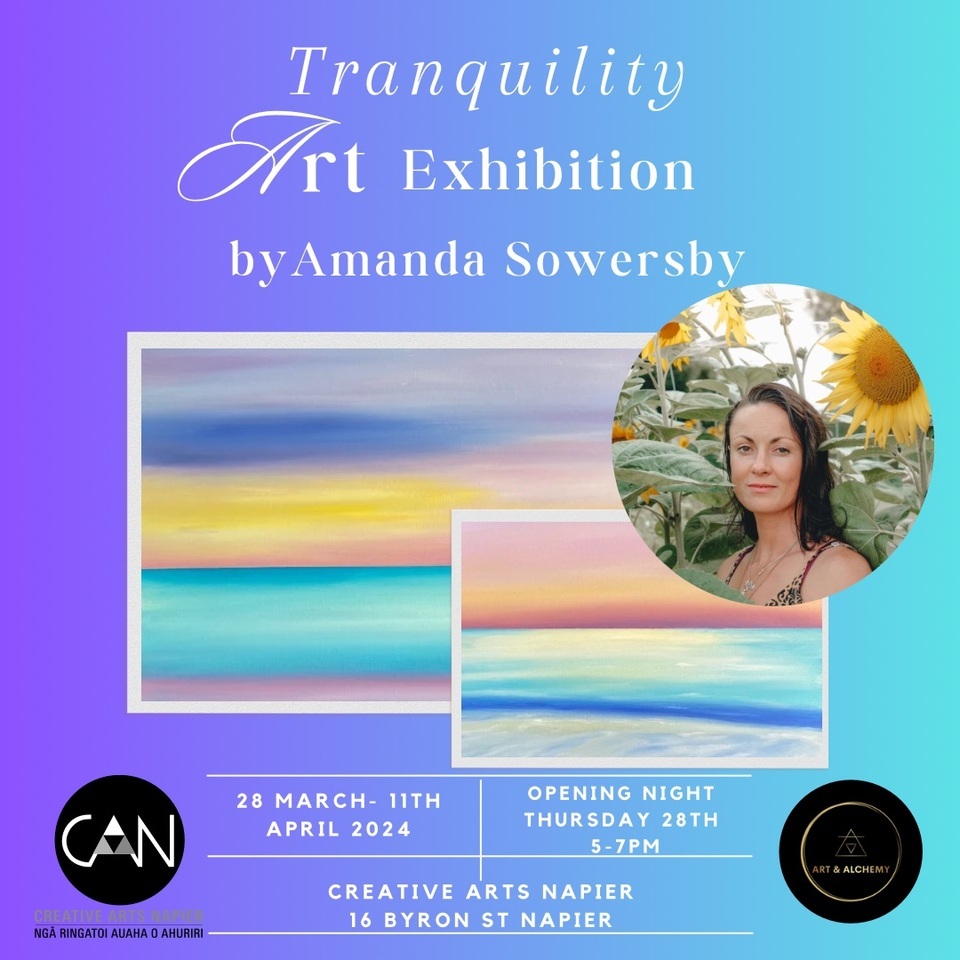News 15-24throposophy in Hawkes Bay Sunday 14 April 2024 Calendar of Coming Events-- Diary Dates In the Rudolf Steiner Centre, 401 Whitehead Road, Hastings (** see below for more details.)
------------------- From yesterday's AGM We welcome Michael Caris as a fifth member of the Committee. He brings a special interest in the promotion of study groups, promotion, contemporary issues, to develop the cultural life of the branch. We had a positive meeting - thank you to those who came or tendered their apologies. Minutes of the AGM will be posted on the website soon. The Libretto of Wagner’s opera 'Parsifal' Friday, 19 April at the Centre 7.00 p.m. Gathering, hot drink and snacks John Allison will introduce us to Rudolf Steiner’s words about Richard Wagner's “Parsifal”. Wagner called it “Ein Buehnen-Weihe-Festspiel” -- Eva Knausenberger will give an introduction to Wagner’s Parsifal opera libretto. While the sacred side of the opera – the Mystery of the Holy Grail – centres around the redeeming and healing power of Christ’s blood in the chalice of the Grail, Eva’s talk will focus on the dramatic side of Parsifal’s journey as a representive of the human developmental path through life; its temptations – even addictions – its sorrows, yearnings and the struggle to remain morally upright and compassionate.
Richard Wagner (1813 - 1883) When speaking of the Mystery of the Holy Grail, Rudolf Steiner said1, “.... hardly has anyone even come so near to this Mystery as Wagner did. It is indeed the power with which he approaches this mystery that constitutes his greatness as an artist. We must not think of him merely as a musician, but as one who possesses deep knowledge and understanding. With the opera Parsifal he wants to resurrect the knowledge of the Mystery of the Holy Grail for the people of our time.” 1This extract is from The Secret of the Grail in the Works of Richard Wagner, by Rudolf Steiner, 29 July 1906 (Lecture 24 from the lecture series, Christian Mystery) In preparation for this talk, it would be helpful if you could read the English version of Wagner’s Parsifal libretto (here) beforehand.
Cultvating Change Conference Plans for this Conference are going very well, with a large group of helpers and contributors, both locally and nationally.
Storeroom at the Centre If you use pictures from the storeroom, please ensure they are returned to their correct place, including the high racks. Does anyone own the red jersey that has been in the storeroom for some time? Diana 021 706709 COMMUNITY NOTICES Kathys' Therapeutic Pastel Group This term (2) we will be working with 10 guided meditations from Vincent Van Goghs' paintings..Lots of colour lots of joy.... We will find the colour (soul) mood behind each painting and then bring forth the forms through the movements of the colour... Kathy works from her trainings in Haucshka and Liane Collot d'Herboise art therapy. Each person will receive one-one therapeutic guidence with the colours in front and behind the light.. Starting Wednesday May 1st at 10am-11.30am. At the Rudolf Steiner centre. Phone/txt Kathy 0272330970 if you are interested. A request:
I am wanting to obtain a copy of ‘Eternal Childhood’ by Karl Konig. ( 2 if possible so that one can go into the library). I am hoping someone might have it on their bookshelf and no longer have need of it.
In appreciation,
Kind regards
"Tranquility" Art Exhibition
Thought for the week From p795 Paul Emberson “From Gondhishapur to Silicon Valley” 9782904991431 The consciousness of one’s “I” It was one of the purposes of the ancient Mysteries to raise human consciousness to full awareness of this process of individualization. That was also one of the aims of the teaching carried over by Michael into his school in the sphere of the Sun. The human being is called upon to acquire knowledge of the nature of his own spiritual self. Above the portal of the Mystery Temple were engraved the sacred words: "O Man, know thou thyself!" Individualization had entered its final stage by the middle of the fourth post-Atlantean epoch when the Mystery of Golgotha occurred. Awareness of our own identity thus became the central experience of our present fifth epoch. Ours is the epoch of egoism: "The fifth cultural epoch is a purely intellectual one, an epoch of egoism. We are now at the high point of egoism. The intellect is egoistical to the highest degree, and it is the hallmark of our time. And so, we must make our way upwards through intellect to spirituality, which was once there in ancient times."* What is it that makes us individual? It is the fact of being incarnated in a separate physical body. Each of us occupies a unique position in space because only one physical body can occupy that particular place at any given time. And each of us perceives the world through sense-organs that are differently developed: strength of eyesight, acuity of hearing, and so on. It follows that at every moment each of us sees the world from a particular angle and in a particular way, which no one else can experience. This is true of our perceptions through all our senses. Moreover, each of us experiences a particular stretch of time. There are no two human beings who are born at exactly the same instant and die at precisely the same moment. What we experience in this earthly life is very different from what people experienced in the past and will experience in the future. Of course, each of us has passed through previous earthly incarnations in which we were not the same persons as we are in our present earth-life. And in future incarnations, we shall again be other persons. Our individuality is specific to our physical body in a particular incarnation. Our body is the basis of our experience of individuality. Because we are aware of the "I" as the centre towards which is directed all our individual experience of the world, we may easily confuse the "I" with individuality. And yet the very circumstance that we give to this central core of our being the same name as everyone else gives to the core of his or _her being should alert us to the fact that the "I" is different from the individuality. The identity of the individuality is that of the person we are in this incarnation, distinguished by our first name or names and our family name. As a small child, the human being at first designates himself by his personal name. Then he learns to employ the word "I" in about the third year of his life. But at that age there is not yet any real "I"-consciousness. The child learns to use it in an automatic way. The birth of the "I" occurs in the twenty-first year of life. But what lights up in us at that time, and from then on through our whole life, is still not the true "I". The normal human being only encounters the true "I" after death. Throughout our life we use the word "I" only in a provisional way, said Rudolf Steiner. *”The Temple Legend” by Rudolf Steiner CW93
Posted: Wed 03 Apr 2024 |
| © Copyright 2026 Anthroposophy in Hawkes Bay | Site map | Website World - Website Builder NZ |





